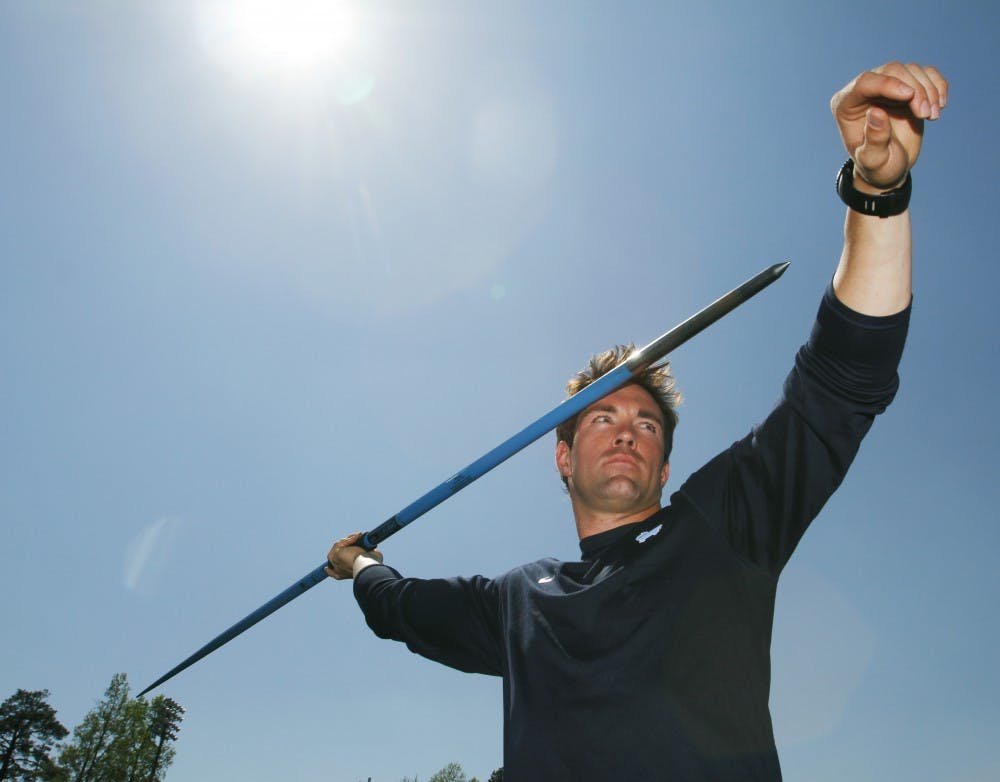Another thing happened at Northwest Guilford High School — a tumor formed on Summers’ head. Juvenile nasopharyngeal angiofibroma, they call it. It started as a sinus infection, progressed and left Summers hospitalized for several weeks. Months of rehab ensued.
“The only thing I can’t do is cry out of my right eye,” Summers says now, laughing. “That’s not a bad consolation.”
Some would have given up, succumbed to the tumor. It had the opposite effect on Summers: a new dream was planted. He was going to be a doctor.
“It takes a certain kind of heart and desire,” said Steve Merriman, a Kansas City Royals minor league pitching coach and one of Summers’ baseball mentors. “Houston’s a pretty focused young man.”
‘A man’s game’
In June 2005, Summers’ phone rang. It was the Arizona Diamondbacks.
They told Summers, then 17, they were going to pick him in that month’s amateur draft, and they did in the 47th round.
“It really wasn’t a tough decision,” Summers said. “I really wanted to play baseball.”
The Diamondbacks gave him a solid contract, agreed to pay for college when he returned and shipped him off to Missoula, Mont., to play in the minor league.
Summers was the youngest American-born player ever drafted by the Diamondbacks, and it was apparent.
“I legitimately had no idea what to expect — I was 17 years old,” he said. “I had to grow up really, really quickly … It really is a man’s game.”
Life in the minors wasn’t glorious. Summers was perpetually at the whim of the team’s management, and he played for six different teams during his five-year career.
To get the day's news and headlines in your inbox each morning, sign up for our email newsletters.
On game days during the season, the players would live and breathe baseball from 8 a.m. until around 1 a.m. the next day. Then they would do it again. One-hundred forty-six games in 162 days.
“It’s crazy,” Summers said.
Along for the ride was Andrew Fie, another high-schooler drafted by Arizona and sent to Missoula. They soon became good friends, bonding over the long bus rides and shoddy stadiums.
“He is a very easygoing guy and probably one of the funnest guys to be around,” Fie said. “Everybody just kind of gravitated toward him.”
Merriman, then with the Diamondbacks, was one of them.
“I loved his attitude. I loved his positive nature,” he said. “Asked a ton of questions, continual with some of the things he wanted to know.”
Summers never made an active MLB roster, but he was called up and placed on a restricted list multiple times. He could do everything a normal MLB player does — be in the dugout, clubhouse, bullpen — except take the field.
Summers spent time with the Diamondbacks and Cardinals in the major leagues, experiencing the lifestyle he’d long been dreaming of.
Dinners for eight cost $3,000. To pay, they would all place their credit cards in a napkin, shake it up and select one. The owner of that card footed the bill.
“Nothing is ever in moderation with that bunch,” Summers said. “It really is a different world.”
He was around the likes of Albert Pujols, Randy Johnson and Justin Upton. Every day Johnson would park his black Bentley at the clubhouse door, nowhere near a parking spot, and wait for an escort, Summers said. There it would remain until he left.
“You can do that when you’ve won (five) Cy Young (Awards),” Summers said.
After bouncing around the minor league for five years and sustaining multiple injuries to his left shoulder that culminated in surgery in 2010, Summers decided that his baseball career was finished.
Some would have been satiated: a successful career in the minors, sprinkled with a taste of life in the majors. But Summers’ ambition was obstinate, so he enrolled at UNC. He wanted to be a college athlete.
What they’re looking for
Summers walked into UNC head track and field coach Harlis Meaders’ office during the second week of the fall semester to ask about joining the team. Meaders directed him to assistant coach Josh Langley.
“They both looked at me like, ‘There’s no way you’re making the track team,’” Summers recalled.
They agreed to allow him to practice, and Summers worked tirelessly.
“He told me, ‘I don’t know anything about track and field. But I’m willing to put in the work,’” Langley said.
Senior pole vaulter Pete Rehder remembers the first day of practice, when Summers led the workout on a sweltering afternoon.
“Everyone was struggling, and Houston was out in the front,” Rehder said. “(Assistant) coach (Steve) Rubin was like, ‘You’re gonna let a baseball player beat you?’”
It soon paid off, and one day after practice Meaders gathered the team with an announcement.
“(He) said, ‘I don’t know if this guy’s any good or not — he may absolutely suck,’” Summers recalled. “‘But he’s on the team because he has what we’re looking for.’”
Ambition, again
Summers’ sheer will fueled him past the tumor, past the countless team changes in the minors, past the shoulder surgery. And it’s the reason why, with zero experience, he made a Division-I track and field team.
And the 25-year-old freshman is now one of UNC’s most interesting projects.
Competing unattached March 23 at the Kent Taylor Invitational, Summers threw the javelin 65.29 meters, a mark that, as of Tuesday, was among the top 30 of NCAA throwers nationwide.
“He could end up being an All-American,” Rehder said without hesitation.
And Summers has even greater aspirations: the 2016 Summer Olympics. After that, medical school.
So here Summers stands today, experienced yet possessing unlimited potential, respectful of his past but focused on the future, ambitious until the end.
Contact the desk editor at sports@dailytarheel.com.




